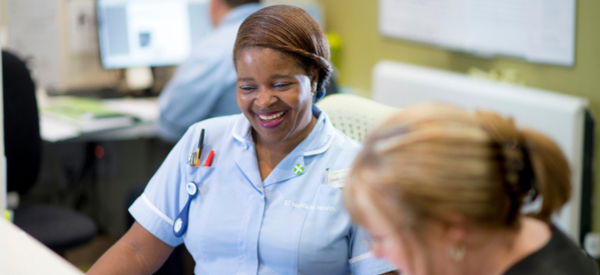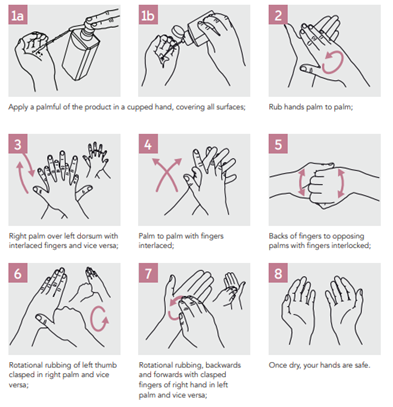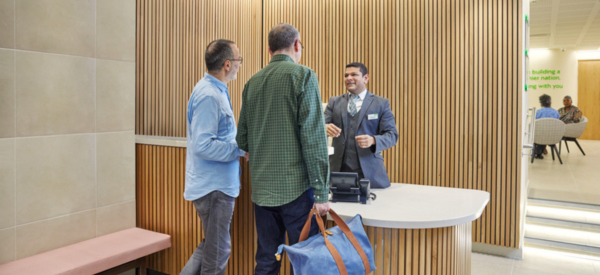Infection prevention and control
At Nuffield Health we take infection prevention very seriously. Read our guidance to to help prevent and control infection during your stay in hospital.
Infection prevention in Nuffield Health hospitals
At Nuffield Health we take infection prevention very seriously. We have trained infection prevention staff who take pride in promoting and monitoring high standards of infection prevention within their departments.

We will care for you in a dignified manner, observe your right to privacy and confidentiality, and recognise best practice and safety for all patients, visitors and staff.
All of our hospitals provide single patient rooms and we expect our housekeeping staff to maintain excellent standards of cleanliness throughout the hospital. Please inform staff if you find any areas dirty, so that appropriate action can be taken.

Hand hygiene
Hand hygiene is one of the simplest
but most effective ways to
prevent the spread of infection. All of our staff are trained in the importance
of hand hygiene and assessed in hand hygiene
competency. You should expect to see doctors, nurses and other health care staff clean their hands with alcohol hand rub, or through hand washing, before attending to
you. Please do not hesitate to remind them to do so. It is Ok to ask!
Take a look at our graphic for how to wash your hands efficiently, or click the link below to read our article about hand hygiene.

How you can help reduce infection risks whilst in hospital
Nuffield Health Hospitals are determined to minimise the risk of infection to our patients. In order to do this, we feel it is important to inform our patients about the ways they can help reduce the risk of infection to themselves.
Before your admission
- Inform staff if you have been in another hospital for longer than 24 hours in the last 12 months.
- Answer our infection prevention risk assessment questions before your admission so that any potential risks can be identified and managed.
- Let us know if you work in a healthcare environment.
- Let us know if you or any of your household have been ill, including respiratory symptoms or having an upset stomach, in the 48 hours prior to admission.
- Have a shower or bath, and wash your hair, before coming into hospital. Do not apply moisturiser or talcum powder afterwards. Please put on clean clothing after your shower and sleep in a bed with clean linen.
- Do not remove body hair from your surgical site yourself prior to admission to hospital as this could damage your skin and increase your risk of a wound infection.
Whilst you are in hospital
- Make sure you wash your hands before eating and after going to the toilet (see image on next page). If you are unable to wash your hands, please ask staff for hand wipes.
- It is important that you keep warm before surgery as this will help to reduce the risk of post-op complications. Please inform a member of staff if you feel cold at any time.
- Let us know straight away, if you develop an upset stomach during your admission.
- Limit your visitors to two at any one time and ask them not to visit you if they have any infections (especially sickness, diarrhoea or influenza). Please encourage them to clean their hands when they enter the hospital and again before entering your room.
- Please do not touch or disturb any wound dressing as this may introduce infection. It is protective for your post-op dressing to remain in place for at least forty-eight hours (sometimes this will be up to a week) but nursing staff will check it regularly. Please let them know if it becomes uncomfortable, loose or wet.
- If you have a small plastic needle in your arm or hand (cannula or drip) or a tube in your bladder (catheter) please do not touch these. Nursing staff will check them regularly but please inform them if they become uncomfortable.

After your discharge from hospital
Please inform your hospital if you suffer any illness immediate post-discharge e.g. sickness, diarrhoea or respiratory symptoms You will be given instructions, for example, about how to care for your wound sites, but if you have any concerns please do not hesitate to contact the hospital for advice.
